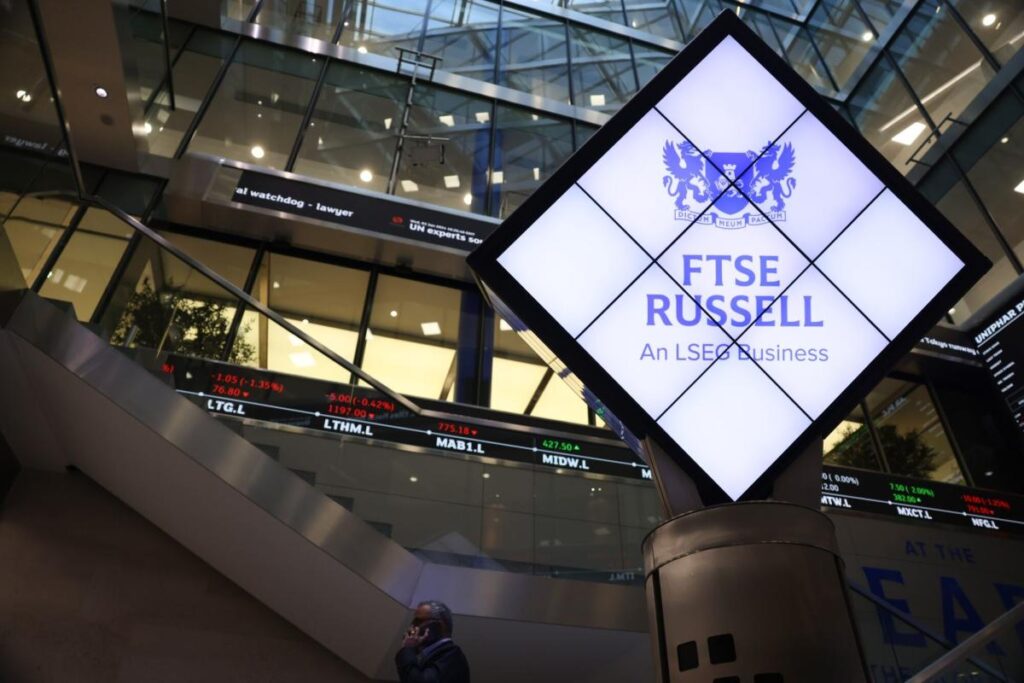(Bloomberg) — South Korea plans to limit its overhaul of its financial market infrastructure and join FTSE Russell’s main global bond index next year in hopes of attracting tens of billions of dollars in foreign investment.
Most Read Articles on Bloomberg
The index provider also plans to add India to its emerging market debt assessment from 2025, citing progress made by government authorities to improve market access. Meanwhile, Vietnam stocks remain on the watch list for upgrade to emerging market status, while Greek stocks have been added to the list of candidates for further upgrade to developed market status.
The announcement comes just as interest in Asian bond markets abroad is increasing as yields in the U.S. and Europe decline. When a new member is added to a benchmark like FTSE’s $30 trillion World Government Bond Index, the global funds that track the index have to buy that country’s government bonds.
Still, Seoul’s green light came as a bit of a surprise after Morgan Stanley and Goldman Sachs Group Inc. warned of the risk of delays due to slow reform efforts.
“This development is expected to have a positive impact on South Korean financial markets,” said Ki-young Sung, lead macro strategist for Asia at Société Générale SA. He expects medium-term bonds to rise, yields to fall by 10 to 20 basis points, and the won to strengthen.
FTSE Russell praised both South Korea and India for the steps they have taken to improve access for foreign investors. Seoul authorities eagerly urged participation in the WGBI by extending trading hours for the won and making it easier for foreign investors to settle trades via Euroclear.
According to the Seoul Ministry of Finance, the accession is expected to bring in $56 billion, and the new funds will help manage government finances.
Once the WGBI is phased in quarterly over a period of one year from November 2025, South Korea’s weight in the WGBI is expected to be 2.22%.
In contrast, the Indian government kept a low profile in the public eye. While joining a flagship index could attract global capital, it could also pose risks for emerging economies that frequently suffer from capital outflows.
A Ministry of Finance official told Bloomberg that South Korea will “closely monitor” both the bond and foreign exchange markets following the FTSE announcement to ensure there are no fluctuations.
story continues
But with Russia under sanctions over its invasion of Ukraine, investors in emerging markets are almost uniformly bullish on India’s debt and are pushing for inclusion in their benchmarks.
Indian government bonds will be added to FTSE’s $4.7 trillion Emerging Markets Bond Index for six months from September next year, giving them a final share of 9.35%. This is the second highest number after China.
“We have seen progress over the last few years of tracking India,” said Nikki Stefanelli, global head of FICC index policy at FTSE Russell. I think it’s really clear to us that it’s part of the mainstream emerging market choice set and becoming an increasingly important part of their portfolios. ”
The world’s fastest-growing major economy was added to JPMorgan Chase’s Emerging Markets Index in June with great fanfare, even though it is considered a reform laggard.
India’s index-eligible bonds have seen more than $14 billion in inflows this year. It will be added to the Bloomberg Local Currency Government Bond Index in January.
Bloomberg LP is the parent company of Bloomberg Index Services Limited, which manages indexes that compete with those of other service providers.
–With assistance from Ronojoy Mazumdar, Jaehyun Eom, Greg Ritchie, Joanna Ossinger, Maria Elena Vizcaino, Youkyung Lee, and Ezra Fieser.
(Adds FTSE Russell quote in paragraph 13)
Most Read Articles on Bloomberg Businessweek
©2024 Bloomberg LP

